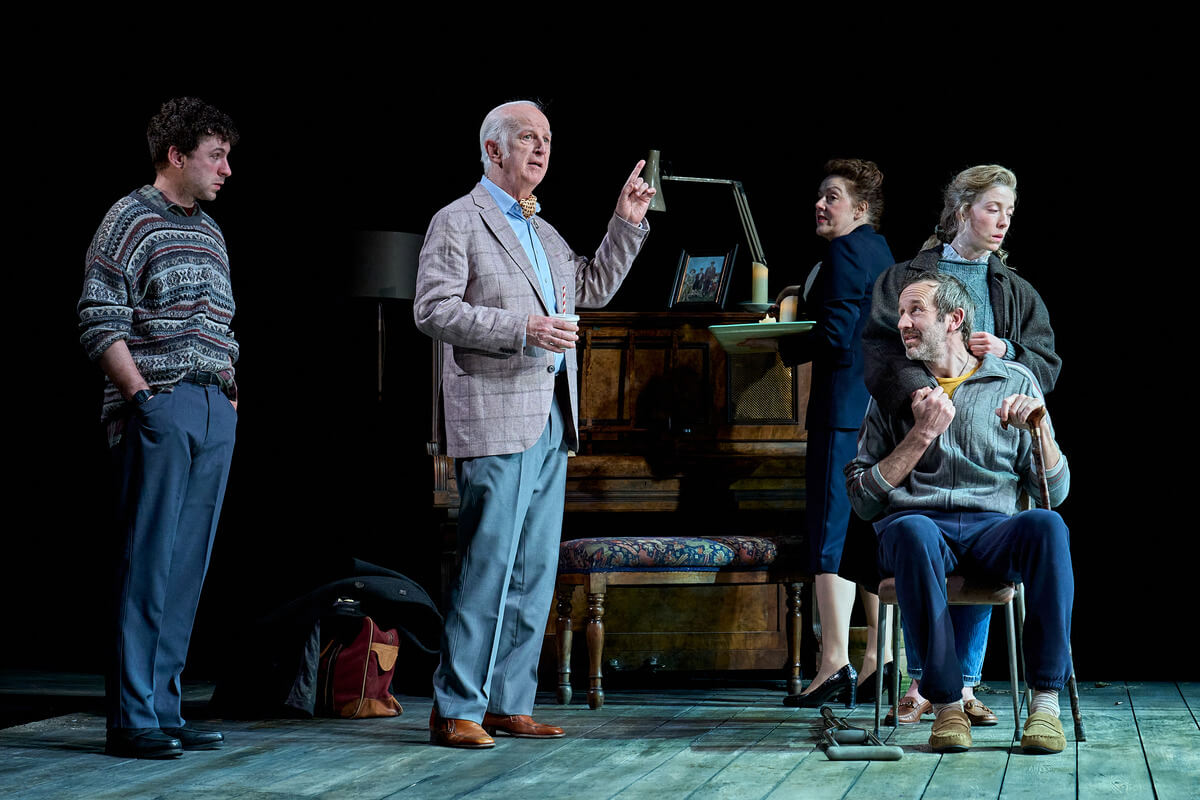Post-natal Kitty and husband Ed are entertaining best friends Jake and Rachel (Adam James and Sian Clifford) in their new home, surrounded by unpacked boxes because the pair cannot decide where key furniture should be positioned. Their lack of agreement on such trivialities and the stagnation which ensues, is a subtle metaphor for their marriage and the polar opposite way in which each concludes viewpoints on any subject. Ed is all logic and deconstruction of the arguments, (typical criminal barrister, I hear you cry) whilst Kitty imbues emotional relevance to any and all topics of debate (typical female you may think - but nowadays you'll see the sense in keeping that rash generalisation in your head and not expressing it out loud). When revelations surface of infidelity in Jake and Rachel's marriage, there is little wonder that their sympathies and approach to the complications are informed by their usual mental and emotional default settings.
Stephen Campbell Moore's Ed is a seemingly self-confident man at the peak of his powers but, as we learn during the course of the play, he too has inflicted pain by an infidelity - pain for which he has apologised (in that detached way barristers have about them), but not said he is sorry. The distinction as viewed by Kitty - a superbly restrained performance from Claudie Blakley - causes a seething resentment which goes to the very core of the play and acts as a catalyst for the disintegration of their relationship.
As supporting evidence, Ed's courtroom hatchet-job on a raped but inarticulate woman, (Heather Craney) provides a telling side-show on his priorities and lack of genuine empathy for those who suffer at the hands of another. His belief in the law and its processes and procedures has formed the bedrock of his personality, but when Kitty decides to take revenge on his emotional detachment by embarking on a extra-marital affair with the opposing barrister in the rape case, Ed's bedrock crumbles and his vulnerability, frustration and anger become visible. This could be a neat summation of the wider negative societal perception of courtroom procedure and legal jargon, which is often deemed to result in a skewed take on truth and justice, often due to the determined exclusion of relevant but inadmissible background information.
You could be forgiven for assuming that in penning this play, Ms Raine jumped on the #MeToo movement bandwagon, but the piece pre-dates the Weinstein revelations. The glib one-liners, caustic barbs and politically incorrect asides, fit neatly into the comfortable, professional, middle-class environment and lend great comic strength to a play which is inherently filled with emotional angst and heartbreak - every ounce of which, has been drawn-out by Roger Michell's provocative direction.

 Lee Ingleby (Tim) and Clare Foster (Zara) in Consent at the Harold Pinter Theatre - Photographer credit Johan Persson
Lee Ingleby (Tim) and Clare Foster (Zara) in Consent at the Harold Pinter Theatre - Photographer credit Johan Persson


 Anyone that spends time with pre-schoolers will not only have heard of Michael Rosen’s classic We’re Going on a Bear Hunt, they will also almost certainly know every single descriptive, onomatopoetic word of that story.
Anyone that spends time with pre-schoolers will not only have heard of Michael Rosen’s classic We’re Going on a Bear Hunt, they will also almost certainly know every single descriptive, onomatopoetic word of that story.